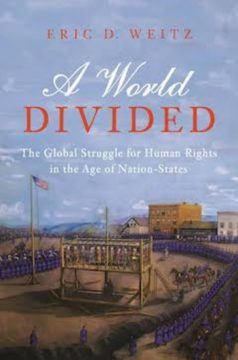 Eric D. Weitz in the LA Review of Books:
Eric D. Weitz in the LA Review of Books:
THE MODERN HUMAN RIGHTS SYSTEM, an assemblage of international treaties, state laws, and thousands of NGOs, is the work, to a very significant degree, of the Soviet Union. This simple contention is likely to inspire screams of outrage. How can we talk about human rights in a country that, under Josef Stalin, killed, tortured, and deported millions of its own citizens? Even under Stalin’s successors, the Soviet state remained deeply repressive and imprisoned and confined to psychiatric hospitals thousands of people who spoke out for freedom of speech and assembly and other basic rights.
Yet from a variety of angles, the Soviet Union contributed many panes in the construction of the fragile, glass house of human rights. Whatever its practices at home, at the international level after 1945 the Soviet Union promoted a robust conception of human rights that included national self-determination and economic and social rights. Its moves beyond the narrow, classically liberal conception of political rights inspired great hostility from the United States and many other liberal states that are usually considered the singular creators of human rights — and won the Soviets support in the Global South. Together, the Soviet bloc–Global South alliance largely defined the meaning of international human rights from the 1960s onward.
More here.
